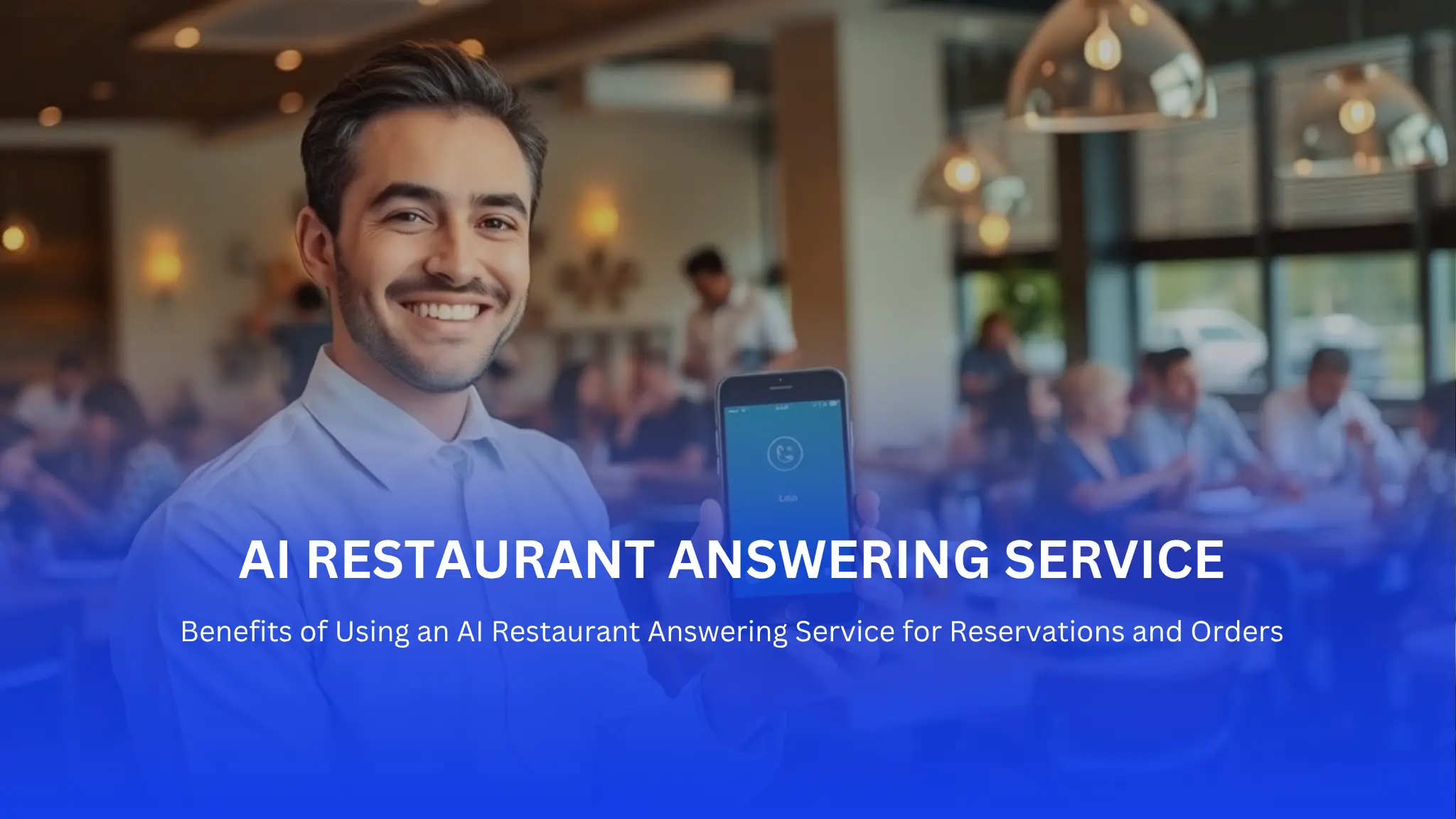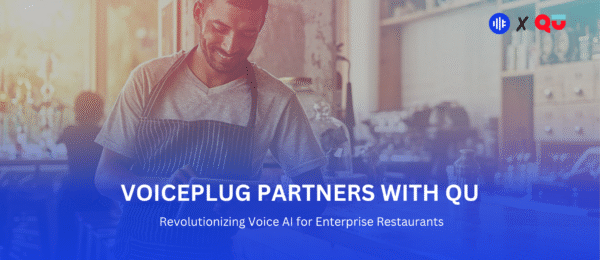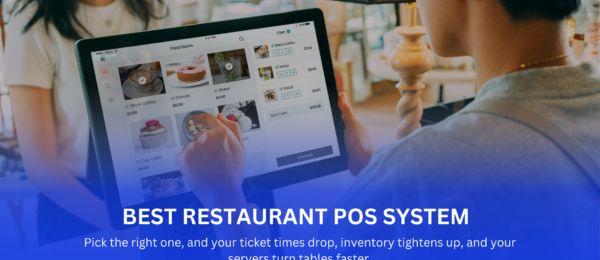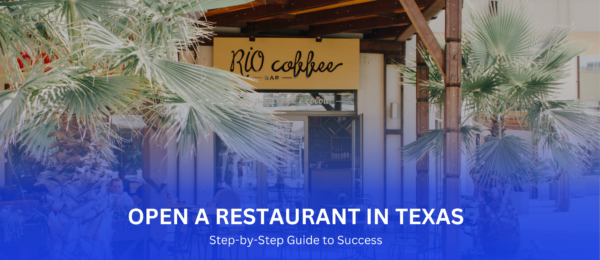VoicePlug’s conversational AI now integrated with Qu to enable intuitive voice ordering across phones and drive-thrus.Palo Alto, CA…
Learn More
Benefits of Using an AI Restaurant Answering Service for Reservations and Orders
Running a restaurant today means juggling constant phone calls, short staffing, rush-hour chaos, and customers who expect fast, accurate service every time they call. When phone lines get clogged, orders get rushed, or calls go unanswered, revenue slips through the cracks.
This is exactly where an AI Phone Answering System helps. Instead of letting calls pile up or pushing your team to multitask between tables and phones, an AI system answers every call instantly, takes clean orders, and books reservations without mistakes — even during your busiest spikes.
Below, we break down how AI call-handling actually benefits day-to-day restaurant operations and helps owners recover missed revenue.
Key Takeaways
- AI ensures every call is answered within 1 second
- Cuts down missed calls (typically 20–30% during peak periods for many restaurants)
- Captures orders accurately, including modifiers and special instructions
- Works alongside your staff, not instead of them
- Improves ROI by reducing labor pressure and preventing lost orders
The Real Problems Restaurants Face With Phone Reservations & Orders
Phone management isn’t a small issue — it directly affects revenue. Here are the challenges most operators deal with daily:
Overwhelmed Staff During Peak Hours
Between 12–3 PM and 7–10 PM, most restaurants operate at full throttle. Staff are already stretched between:
- answering phones
- packing takeout orders
- greeting guests
- handling dine-in requests
It’s common for phones to ring 5–7 times before staff can answer — if they answer at all.
Missed Calls = Missed Revenue
Industry data shows restaurants miss 20–30% of calls during busy hours.
That translates directly to:
- lost orders
- abandoned reservations
- customers switching to competitors
Most operators don’t realize the exact number of calls they miss because they’re not tracked manually.
Human Error During Order Taking
Rushed order-taking leads to:
- wrong items
- missed modifiers
- incorrect packaging
- frustrated customers
- wasted food
For many quick-service or delivery-heavy restaurants, a single wrong order can wipe out the margins of that transaction.
These are the problems an AI Phone Assistant is built to address — not by replacing staff, but by taking pressure off them.
What an AI Restaurant Answering Service Actually Does?
An AI Phone Agent uses voice AI and natural language technology to answer customer calls within one second, understand what they’re saying, and help them place an order or make a reservation.
How It Works Behind the Scenes
- Listens and understands natural speech (accents, variations, casual language)
- Asks follow-up questions like a trained staff member
- Confirms modifiers and special instructions
- Sends orders directly into the POS
- Books reservations and sends confirmations
Nothing robotic — just fast and consistent call handling.
Why Restaurants Choose AI Over Traditional Call Handling?
1. No Missed Calls
AI answers every call immediately, whether it’s 2 PM or 2 AM.
This alone helps restaurants recover thousands of rupees in missed orders each month, depending on call volume.
2. Consistent Accuracy
Because the AI confirms every detail:
- fewer wrong orders
- fewer remakes
- fewer complaints
- less food waste
3. Handles High Volumes Effortlessly
Whether there are 5 calls or 50 calls in a 10-minute window, the AI can handle them all simultaneously.
4. No “Sorry, we’re short-staffed today” Moments
The AI fills the labor gap without adding payroll cost.
Improving Reservation Management with AI
24/7 Call Handling
Customers often call outside business hours — late-night or early morning. Instead of voicemails, the AI simply takes the reservation.
Automated Confirmations
The system sends confirmation messages and optional reminders, which helps reduce no-shows.
Better Table Allocation
When connected to your reservation system, the AI:
- checks live availability
- adjusts for large groups
- handles last-minute requests
- avoids double-booking
Order Taking: Accuracy That Reduces Rework
Precise Capture of Every Order
AI systems confirm:
- spice levels
- toppings
- add-ons
- meal combos
- allergies
- custom instructions
This level of clarity helps the kitchen run smoother.
Special Requests Are No Problem
“Half-and-half toppings,”
“Extra sauce,”
“No onions,”
“Veg-only combo, but fries extra crispy.”
The AI handles these without confusion.
Direct POS Integration
Orders flow straight to the POS, eliminating manual entry errors.
How AI Improves the Customer Experience
More than speed, customers care about:
- not being put on hold
- being understood clearly
- quick order confirmation
Instant Pickup
No more:
- busy tones
- long waits
- dropped calls
Same Quality Experience Every Time
Every caller gets:
- zero wait
- clear questions
- correct order confirmation
Personalization
AI can remember returning customers and recall:
- common orders
- preferences
- typical pickup time
ROI: What Restaurant Owners Actually Care About
Here’s where AI makes financial sense:
1. Labor Savings Without Cutting Staff
AI reduces phone workload by 60–80%, allowing staff to focus on dine-in guests and delivery prep.
2. Recovering Missed Calls
If you miss:
- 20 calls a day
- at ₹300 average order value
You lose:
₹6,000/day → ₹180,000/month
AI helps recover a large portion of this.
3. Fewer Order Mistakes
Each corrected order costs:
- food
- packaging
- fuel (if redelivered)
- staff time
Reducing error rates improves margins noticeably.
Data & Insights You Can Actually Use
AI call systems provide clear analytics such as:
- call volume by hour
- unanswered call attempts
- most ordered items
- order duration
- repeat customers
- reservation trends
This helps with staffing, menu planning, and marketing decisions.
Implementation: What Operators Need to Know
Integration
Most AI ordering systems plug into:
- POS
- online ordering
- reservation tools
Staff Involvement
Your team only needs to:
- understand how orders appear in the POS
- handle the occasional call that must be escalated
- update menu or hours in the system
Customization
Different restaurant types use AI differently:
- QSRs: order taking
- Casual dining: reservations and waitlists
- Delivery-heavy brands: modifiers, combos
- Fine dining: special-occasion bookings
Realistic Examples of AI in Use
Independent Restaurants
An independent biryani shop with high weekend call volume used AI to handle phone orders during peak times. The owner reported fewer missed calls and smoother operations — especially during Friday evenings.
Multi-location Chains
A regional café chain used AI to manage early-morning and late-night calls when stores had minimal staff. The system helped capture breakfast preorders that were previously lost to missed calls.
These examples reflect common operator experiences without inflated numbers.
Final Thoughts
Restaurant owners don’t need more complexity — they need fewer missed calls, cleaner orders, and some relief from the constant pressure on their team.
An AI restaurant answering service delivers exactly that by ensuring every call is answered instantly, every order is captured correctly, and staff can focus on hospitality instead of juggling phone lines.
The result is simple: fewer lost orders, smoother operations, and a better experience for customers.
FAQ
1. What exactly does an AI restaurant answering service do?
It answers calls instantly, takes accurate orders, books reservations, and sends them to your POS.
2. Can it understand different accents or fast speech?
Yes. It uses trained language models designed for real-world calling environments.
3. Does it work when my restaurant is closed?
Yes — it’s active 24/7.
4. Can it handle order modifiers, combos, and custom instructions?
Absolutely. It is trained to ask clarifying questions just like staff would.
5. How does this improve ROI?
By reducing missed calls, lowering order errors, and decreasing staff workload.
6. What if the customer says something unusual?
The AI can route complex or sensitive calls to staff when needed.
7. Is integration difficult?
Most setups connect to popular POS and reservation systems with minimal downtime.
8. Can it reduce staff costs?
It reduces the pressure on staffing but doesn’t replace your team — it simply picks up the call volume they can’t manage.
9. Is training required for my staff?
Only basic familiarization with how orders arrive through the system.
10. What about noisy callers?
Noise suppression ensures the AI can understand callers from busy streets, kitchens, or vehicles.
Articles you might like
The best restaurant POS system in 2026 is one that combines fast order management, real-time reporting, offline reliability,…
Learn MoreA Restaurant Owner and Manager’s Guide to Leverage Customer Feedback Management for Growth As a restaurant owner or…
Learn MoreOpening a restaurant in Texas isn’t about passion.It’s about precision. Every year, thousands of restaurants launch across the…
Learn More




